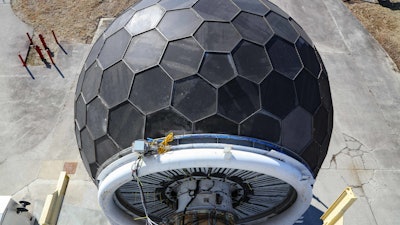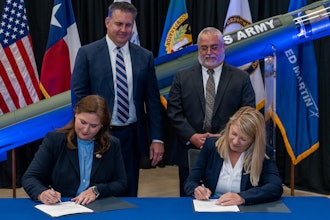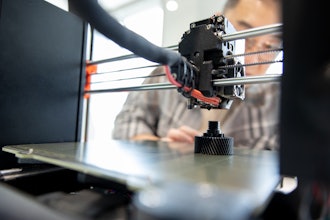
GE Aerospace recently completed testing on its 10th engine model using 100% Sustainable Aviation Fuel (SAF) since 2016.
In 2018, GE90 engines powered the first commercial airliner flight with 100% SAF in both engines on the Boeing ecoDemonstrator, a 777 freighter in partnership with FedEx Express. Then in 2021, LEAP-1B engines powered the first passenger experimental flight with 100% SAF in one of the two engines on a United Airlines Boeing 737-8.
This year, LEAP-1B engines powered test flights on 100% SAF in both engines of the Boeing ecoDemonstrator Explorer, a 737-10 destined for United Airlines, as part of emissions testing with NASA. Most recently, in November, Emirates became the first airline to operate an Airbus A380 using 100% SAF in one of the four GP7200 engines.
Additional engines tested at the component, engine or aircraft-level using 100% SAF include F414, GE9X, LEAP-1A, Passport, GEnx, HF120 and CFM56 engines. The wide range of tests represents a mix of propulsion systems used for domestic and international commercial air travel, military aviation and business and general aviation. These tests also evaluated a wide scope of factors, such as engine performance and the impact of 100% SAF on contrails and emissions.
GE Aerospace and its joint ventures power three out of every four commercial flights globally.
To help qualify new 100% SAFs, GE Aerospace is going from engine system testing to engine component and sub-component level evaluations. This encompasses evaluating components exposed to and impacted by fuels, from the engine fuel system to the combustor where fuel is burned. Various SAF types produced from different pathways are being tested to assess whether there is any impact on engine operability, efficiency, durability, and emissions.
Industry net zero target
GE Aerospace's SAF testing efforts support the aviation industry's long-term goal of net zero CO2 emissions by 2050.
In an interim step, governments gathered in November at the third ICAO Conference on Aviation and Alternative Fuels (CAAF/3), setting a goal for aviation fuel in 2030 to be 5% less carbon intensive than conventional jet fuel used today. This follows an earlier statement by seven chief technology officers of major aviation manufacturers including GE Aerospace calling for supportive government policies that accelerate the availability and adoption of qualified SAF.
Meeting the long-term net-zero goal also requires the industry to deploy revolutionary technologies for increased engine fuel efficiency.
To address this challenge, GE Aerospace has multiple demonstrators underway, including the CFM RISE (Revolutionary Innovation for Sustainable Engines) program in partnership with Safran Aircraft Engines and the Electrified Powertrain Flight Demonstration project with NASA. The CFM RISE program targets more than 20% better fuel efficiency with 20% lower CO2 emissions compared to the most efficient engines in service today. New open fan engine architecture and hybrid electric systems in development are being designed for compatibility with 100% SAF.






















